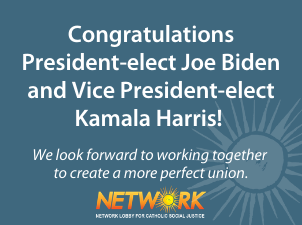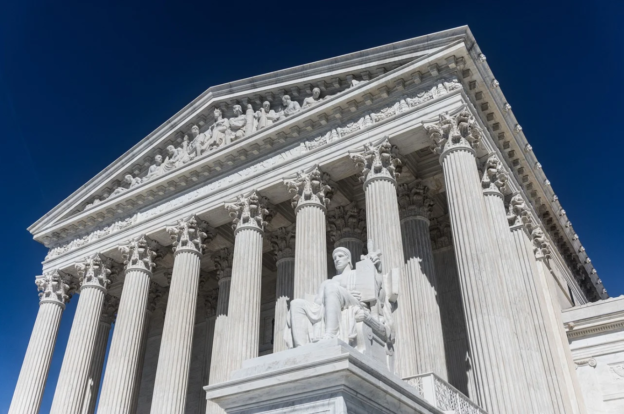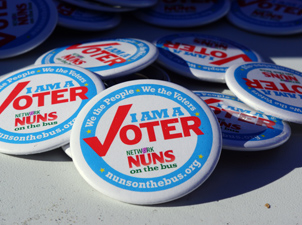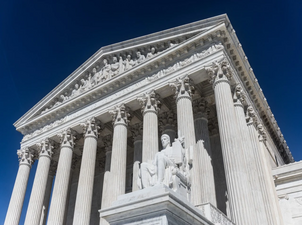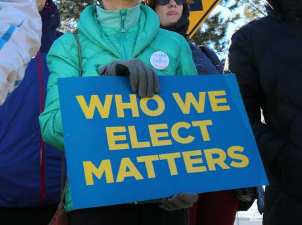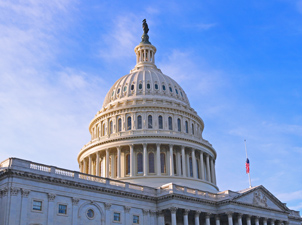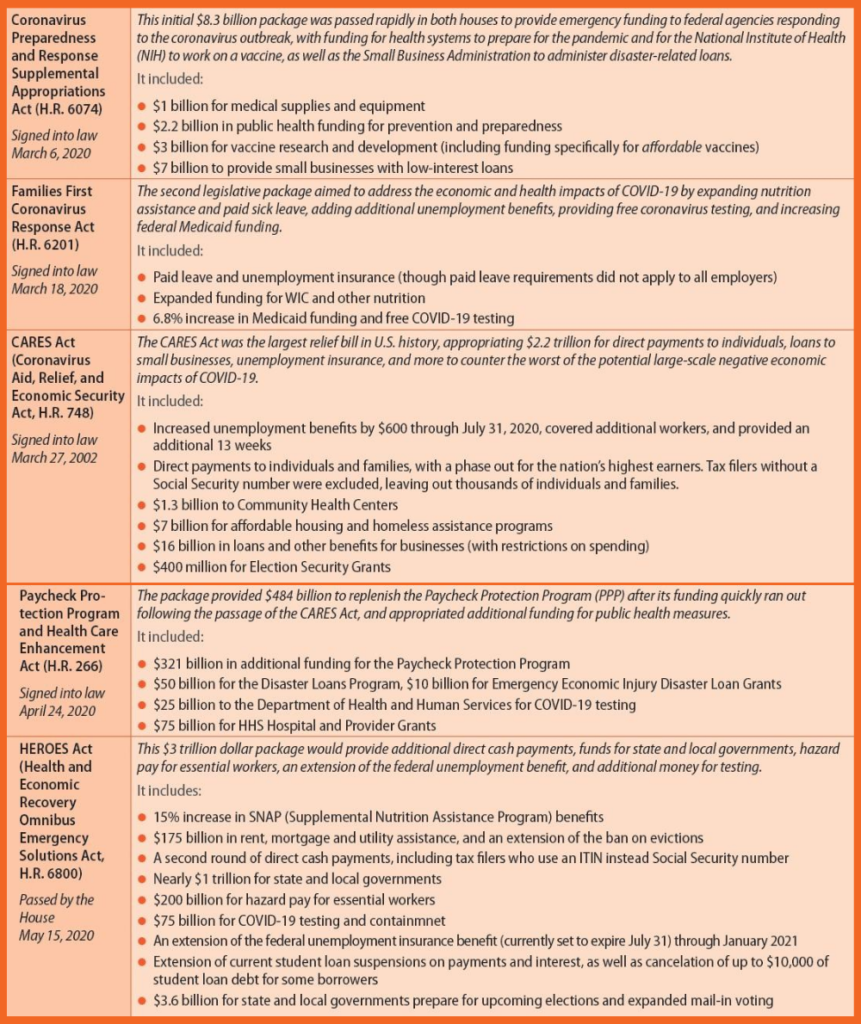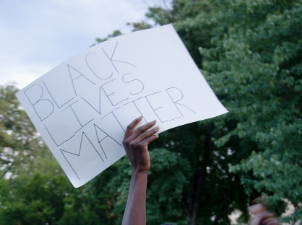
NETWORK Urges Biden-Harris Administration to Address the Suffering in our Nation
Work for Racial Justice, Respect Immigrant Rights, and Strengthen Democracy in the First 100 Days
Caraline Feairheller
December 19, 2020
As President-elect Biden and Vice President-elect Harris prepare to take office, the COVID-19 pandemic has laid bare the ways our nation fails to structure a society that cares for those most in need. As both a public health crisis and an economic one, those most disproportionately affected have been communities of color and the poor. Over the years, the willful dismantling of social safety nets combined with the lack of preparedness for the pandemic have resulted in job loss, evictions, and food insecurity for millions of people.
While the injustice inherit in our system cannot be solved in the first 100 days of a new administration, a conscious commitment to alleviating the suffering can result in policies that prioritize the common good and support people and families at the economic margins.
We urge the Biden-Harris Administration to prioritize and commit themselves to systemic change in all branches of government in order to alleviate the harm brought on by the COVID-19 pandemic through the use of legislative action, such as:
- Implementing a 6-month moratorium on forecloses and evictions.
- Providing additional cash relief payments.
- Creating a White House Racial Equity Office within the Executive Office of the President.
- Require federal agencies serving populations underrepresented on voter rolls to provide voter registration services to their clients.
- And more
In addition to these COVID-19 priorities, we call on the Biden-Harris administration to take immediate action to advance racial justice, protect immigrant rights, and strengthen democracy.
Download the full list of NETWORK priorities for the Biden-Harris transition.







